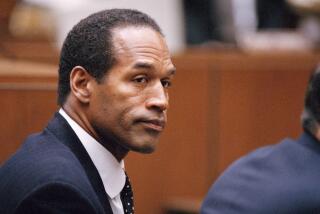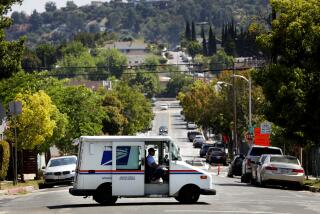The Debate About the Bill Cosby Debate
- Share via
The fierce debate between Bill Cosby and author Michael Eric Dyson over the reasons for black poverty will generate more light than heat (“These People,” by Erin Aubry Kaplan, July 24). By virtue of their marquee personalities, the two have made the issue worthy of center stage. This has forced Americans of all colors to question their own deeply rooted beliefs.
In the final analysis, that process may prove to be the most effective way of introducing sorely needed reason into what has been too often an emotional subject. When that happens, the foundation will be laid for social and economic policies that offer real hope.
Walt Gardner
Los Angeles
*
I find the posturing of intellectuals such as Kaplan and Dyson lacking the outrage that everyone--of any color--should feel. Just as leaders of the Muslim community must step up and decry the cancer of extremism, so too should black leaders object to the acceptance of ignorance, violence and vulgarity rather than dub them “an extension of many important black traditions.” Were Cosby’s comments simplistic? Of course. But they served a purpose--no less so than a journalist asking, “Why we got to be like this?” for effect.
Sean Colgin
Via the Internet
*
When I read Cosby’s remarks, I thought, “Well, that sounds just like something my dad might have said.” Dads are like that. They don’t have all of the reasoned logic of a college professor or magazine writer, but they are often right and tell it like it is. Isn’t it ironic that the father figure is the greatest missing element in the black community? At least Cosby is willing to fill that role.
Robert McVerry
Laguna Hills
*
I wonder why Kaplan never questioned the relevance, and perhaps irrelevance, of Cosby and Dyson to the average 15-year-old in South Los Angeles. Does that 15-year-old actually care what Cosby or Dyson thinks of the neighborhood? Especially when these opinions are debated in the detached world of television talk shows and black-tie dinners? I don’t care how successful they are; let them stand on a corner of Crenshaw one Saturday afternoon and have this discussion.
Larson Sutton
Los Angeles
*
After a few decades of adulthood, one realizes that even if you can prove racism and government indifference, you potentially have a lot more control over the behavior of your family and community. That’s what Cosby is saying--although for a master storyteller, he is surprisingly inarticulate.
Llewellyn Miller
Claremont
*
Dyson and Kaplan can entertain themselves all day long discussing what blackness means. But the bottom line is, whether you’re black, yellow, brown or white, an education and hard work are going to enable you to succeed in life. Having a funky name, a loud stereo or a “ghetto” attitude are not. Cosby was trying to make that point.
Bill Fallon
Newport Beach
*
The problems have been identified. Now it’s up to us educated, middle-class African Americans to create solutions.
Nicole Butler
Los Angeles
More to Read
Get the L.A. Times Politics newsletter
Deeply reported insights into legislation, politics and policy from Sacramento, Washington and beyond. In your inbox twice per week.
You may occasionally receive promotional content from the Los Angeles Times.










